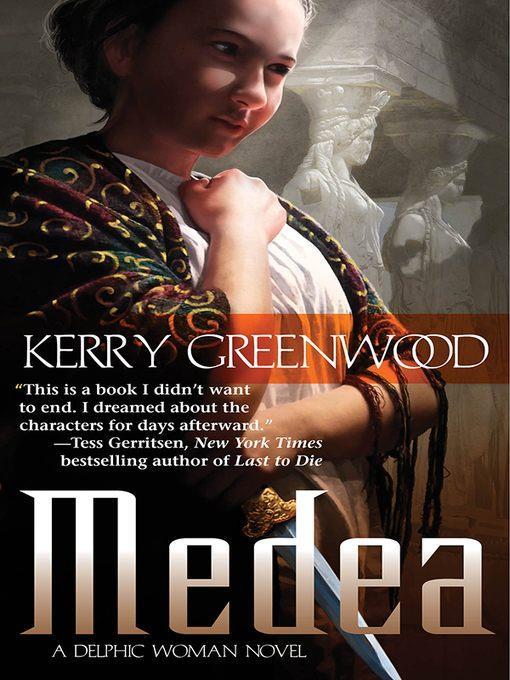
Medea
Delphic Women Series Series, Book 1
کتاب های مرتبط
- اطلاعات
- نقد و بررسی
- دیدگاه کاربران
نقد و بررسی

Starred review from April 22, 2013
Australian author Greenwood retells the story of Jason, Medea, and the quest for the Golden Fleece in a historical every bit as good as her recent Egyptian historical thriller, Out of the Black Land. The narration alternates between Medea, the priestess of the ancient Greek goddess Hekate who betrayed her people and beliefs out of love for Jason, and Nauplius, Jason’s oldest friend. The main action shifts back and forth between Medea’s upbringing (including the beginning of her affiliation with the dark goddess) and that of Nauplius and Jason, first seen under the tutelage of the centaur Cheiron. Greenwood offers interesting riffs on familiar figures of myth, and impressively buttresses her biggest departure from the usual story in a scholarly afterword. She also makes the most of the dramatic potential in the journey of the Argo through dangers that anticipate Odysseus’s perilous return home after the Trojan War. The Medea-centric sections serve as a welcome counterpoint to Robert Graves’s Hercules, My Shipmate.

May 15, 2013
Medea, princess of Colchis, was promised to the dark goddess of destruction, Hekate, at an early age. Acting as priestess to the goddess and tamer of the giant serpent that guarded the fabled Golden Fleece, she expected to live a life of celibacy and service. Jason, prince of Iolkos, was raised by centaurs in the forests removed from the power centers of his island state until he was old enough to claim his father's throne. But first he had to steal the Golden Fleece. After commissioning a ship and hiring a motley band of heroes known as the Argonauts, Jason sails off in search of his prize, unaware that his true fate is to meet, love and, eventually, discard Medea for another woman. What most casual readers of classical literature supposedly know is that Medea murdered her own children. But did she? VERDICT In the first volume of her "Delphic Women" historical series set in ancient Greece, Greenwood has taken the ultimate dysfunctional mother and created a character of depth and complexity who betrayed and was betrayed, was lost and, ultimately, redeemed. Greenwood, a prolific and popular writer in her native Australia, is best known here for her humorous Phryne Fisher and Corrina Chapman mysteries. Readers who enjoy such literary reinterpretations of classical myths as Ursula Le Guin's Lavinia or Margaret Atwood's The Penelopiad will snap up Greenwood's fresh take.--Jane Henriksen Baird, Anchorage P.L., AK
Copyright 2013 Library Journal, LLC Used with permission.

May 1, 2013
Between 1995 and 1997, Greenwood, the Australian creator of Phryne Fisher and (later) Corinna Chapman, wrote three novels under the umbrella title Delphic Women, retelling stories from Greek mythology from new angles. Medea, published in 1997 in Australia, was the third of the books, but it's the first to see publication in the U.S. The author explores the legend of Medeabetrayed wife of the adventurer Jason and murderer of her own childrenfrom a modern-day perspective. The story is told by two narrators: Nauplios, one of Jason's Argonauts, and Medea herself, thus allowing Greenwood to relate events that are separated by vast physical distances in their chronological order. The prose is a bit clunky, but the story is compelling. The main conceit, that these ancient mythological creatures and events were actually real, is risky, but Greenwood makes us believe in centaurs, golden fleeces, and whatnot. She also makes us believe that Medea might have been mistreated by history, that the true story of the woman is perhaps even more astounding than the myth. Compared to Greenwood's more well-known fiction, this book is a bit of a curiosity, but it's definitely worth checking out.(Reprinted with permission of Booklist, copyright 2013, American Library Association.)

























دیدگاه کاربران